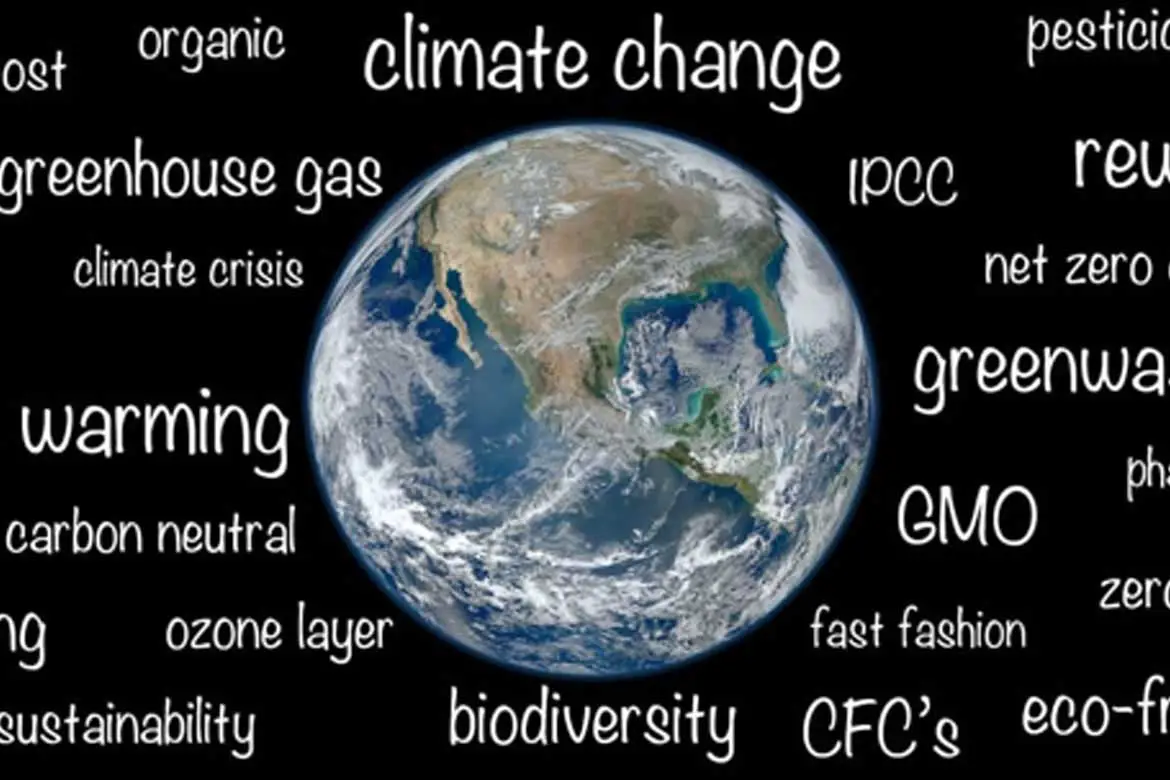Choosing the Right Terms for a Changing Climate
In the realm of climate communication, every word we choose holds the power to shape perceptions, raise awareness, and drive action. A personal anecdote serves as a vivid illustration of this point.
Climate Dislocation vs. Climate Disruption vs. Climate Displacement
While crafting an article about the pressing issue of the climate crisis, I found myself debating between three terms: ‘climate dislocation,’ ‘climate disruption,’ and ‘climate displacement.’ Each seemed to encapsulate the urgency and gravity of the situation, yet each carried its own connotations.
In my narrative about a renowned celebrity* facing the threat of a vanishing home, the term ‘climate displacement’ initially sprang to mind. This term painted a picture of individuals and communities forced to abandon their homes due to environmental upheavals.
However, as I delved deeper into the lexicon of eco-friendly terminology, ‘climate dislocation’ surfaced as a viable alternative. This phrase seemed to capture not only the physical displacement but also the broader societal and economic ramifications of climate change.
My search didn’t stop there. I stumbled upon ‘climate disruption,’ a term that evoked a sense of chaos and upheaval. While it didn’t precisely fit the scenario I was describing, it resonated with the idea that the intricate balance of our planet’s systems was being dramatically altered.
Choosing the Right Term: A Delicate Balancing Act
The task of selecting the most appropriate term among ‘climate dislocation,’ ‘climate disruption,’ and ‘climate displacement’ was not just about semantics; it held profound implications for effective communication and public engagement.
The importance of language in conveying the gravity of the climate crisis cannot be overstated. In a world where attention spans are fleeting, the terminology we employ has the potential to either captivate or repel our audience.
From ‘Environment’ to ‘Green’: An Evolution of Terminology
As language constantly evolves, we find terms cycling in and out of prominence.
- “Environment” was once the go-to word for describing our surroundings and the natural world.
- However, in recent years, “green” has emerged as a buzzword that encapsulates not just the physical environment, but also the sustainable and eco-conscious aspects of it.
- While “environment” and “environmental” are still valid and widely understood terms, “green” has managed to resonate more deeply with a wider audience.
This shift isn’t just about linguistic preference; it reflects a growing cultural and societal shift towards sustainability and eco-friendliness. Choosing “green” over “environmental” is a strategic move in connecting with a generation that values conscious living and seeks solutions to the environmental challenges we face.
Eco-Friendly, Green-Friendly, Pro-Green: Analyzing the Trend
In the sphere of eco-consciousness, language often plays a role in aligning individuals with the cause.
- “Eco-friendly” has been a stalwart term, emphasizing products, practices, and lifestyles that minimize harm to the planet.
- Lately, “green-friendly” and “pro-green” have gained traction. This shift signifies a move from a passive endorsement of sustainability (“eco-friendly”) to a more proactive stance (“pro-green”).
“Green-friendly” seems to imply a broader commitment to embracing green practices, while “pro-green” suggests active advocacy and support for environmental causes. This evolution reflects a deeper engagement with ecological concerns and a desire for meaningful change.
A Glimpse into Terminology’s Past
The history of these terminologies unveils the evolving consciousness around environmental issues.
- The term “climate change” itself has undergone a transformation. Initially, it was employed to convey the scientific phenomenon of shifting climate patterns.
- However, “climate crisis” has taken center stage, conveying a sense of urgency and impending catastrophe that “climate change” might not fully encapsulate.
As Katharine Viner, editor-in-chief of The Guardian, eloquently stated, precision in scientific accuracy must blend with the imperative to communicate the severity of the situation.
Significance of Key Terms
Among the crucial terminology considerations are “global warming,” “climate change,” and “climate crisis.”
- “Global warming” underscores the increase in Earth’s average temperature.
- “Climate change” encompasses a broader spectrum of alterations in climate patterns.
- However, “climate crisis” resonates more aptly with the severity of the situation.
It crystallizes the fact that we are confronting a critical juncture that necessitates immediate attention and action.
Emerging Terms for a Shifting Paradigm
As the climate discourse continues to evolve, new terms emerge to address emerging facets of the crisis. Terms like “carbon footprint,” “sustainability,” and “resilience” have gained prominence.
Additionally, the rise of “regenerative practices” and “circular economy” reflects a growing emphasis on not just minimizing harm, but actively restoring and regenerating the environment. These terms mirror the shifting focus from mitigation to restoration and proactive transformation.
Conclusion: The Power of Precision in Language
In a world besieged by environmental challenges, the words we choose matter immensely. They shape perceptions, drive actions, and define the narrative.
The journey from “climate dislocation” to “climate crisis,” from “environment” to “green,” and from “eco-friendly” to “pro-green” is a testament to the evolving consciousness of our responsibility towards the planet.
Terminology doesn’t just mirror our understanding; it shapes it. As we continue the dialogue on climate change, let us remember that the precision of our language is the compass guiding us toward a more sustainable and harmonious future
—
*Santa Claus becomes the most famous victim of climate change and dislocation in “After the Ice Melts,” an environmental comedy. Visit Draper’s Amazon author’s page.
#

